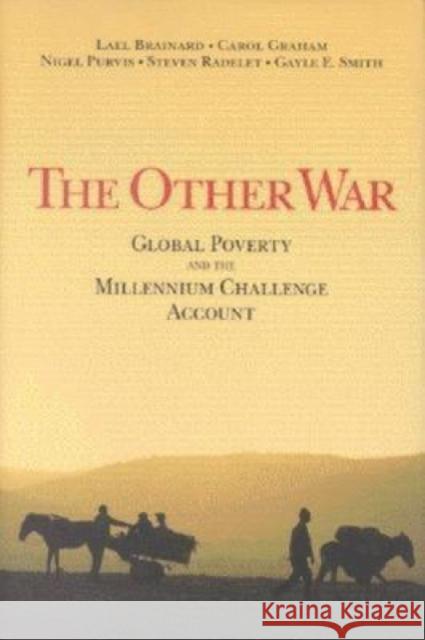The Other War: Global Poverty and the Millennium Challenge Account » książka
The Other War: Global Poverty and the Millennium Challenge Account
ISBN-13: 9780815711155 / Angielski / Miękka / 2003 / 288 str.
The plight of the poorest around the world has been pushed to the forefront of America's international agenda for the first time in many years by the war on terrorism and the formidable challenges presented by the HIV/AIDS pandemic. In March 2002, President Bush announced the creation of the Millennium Challenge Account (MCA). This bilateral development fund represents an increase of $5 billion per year over current assistance levels and establishes of a new agency to promote growth in reform-oriented developing countries. Amounting to a doubling of U.S. bilateral development aidthe largest increase in decades -- the MCA offers a critical chance to deliberately shape the face that the United States presents to people in poor nations around the world. This book makes concrete recommendations on crafting a new blueprint for distributing and delivering aid to make the MCA an effective tool, not only in its own right, but also in transforming U.S. foreign aid and strengthening international aid cooperation more generally. The book tackles head on the tension between foreign policy and development goals that chronically afflicts U.S. foreign assistance; the danger of being dismissed as one more instance of the United States going it alone instead of buttressing international cooperation; and the risk of exacerbating confusion among the myriad overlapping U.S. policies, agencies, and programs targeted at developing nations, particularly USAID. In doing so, The Other War draws important lessons from new international development initiatives, such as the Global Fund to Fight AIDS, TB, and Malaria, the mixed record of previous U.S. aid efforts, trends in the U.S. budget for foreign assistance, the agencies currently involved in administering U.S. development policy, and the importance of the relationship between Congress and the executive branch in determining aid outcomes. The MCA holds the promise of substantially increasing U.S. development assistance and pioneering a new era in aid, but the authors caution against creating yet another example of wasted aid that could undermine political support for foreign assistance for decades to come. About the Authors Lael Brainard is director of the Brookings/CGD Project on the Millennium Challenge Account and holds the New Century Chair in Economic Studies and Foreign Policy Studies at the Brookings Institution. Carol Graham is Vice President and Director of the Governance Studies Program at the Brookings Institution, where she also directs the Global Poverty Reduction Initiative. Steven Radelet is a senior fellow at the Center for Global Development. Nigel Purvis is a senior scholar in Foreign Policy, Economic, and Governance Studies at the Brookings Institution. Gayle E. Smith is a guest scholar at the Brookings Institution and formerly was senior director for African affairs at the National Security Council."











